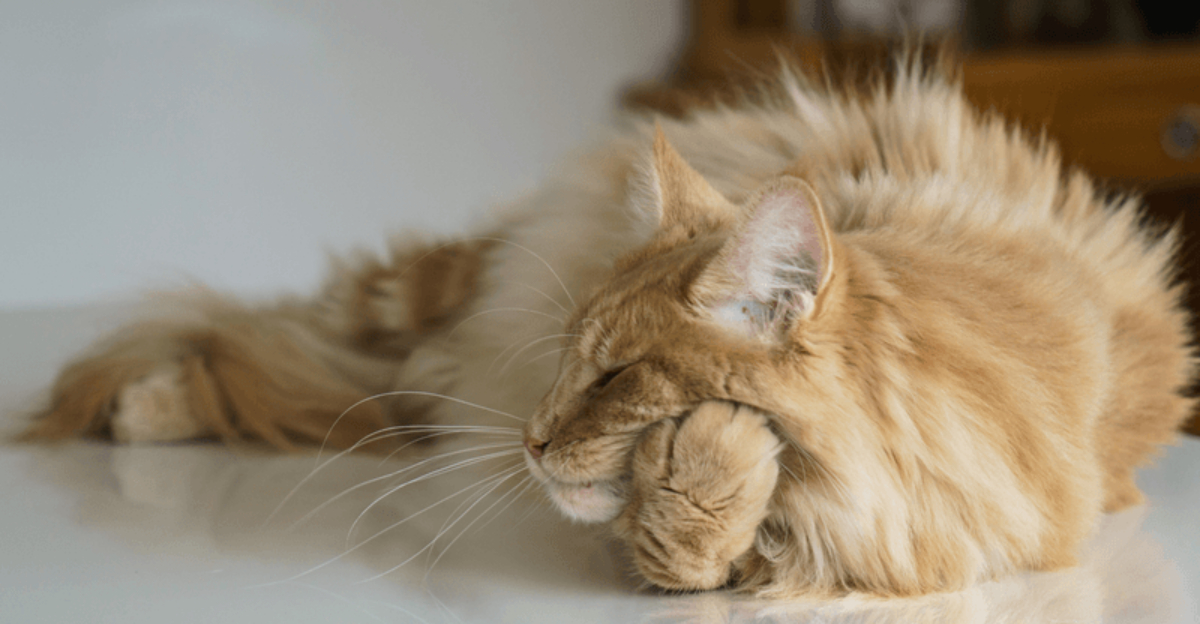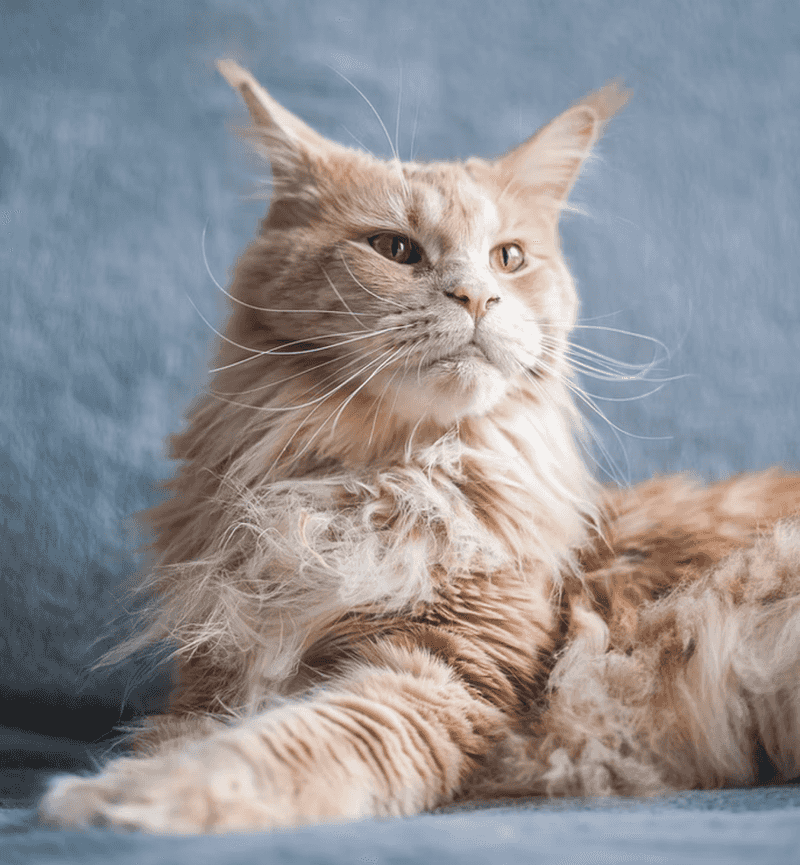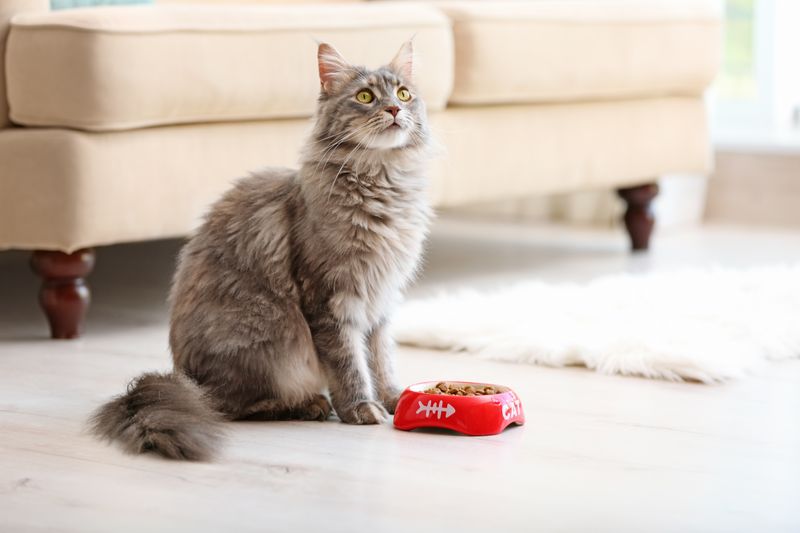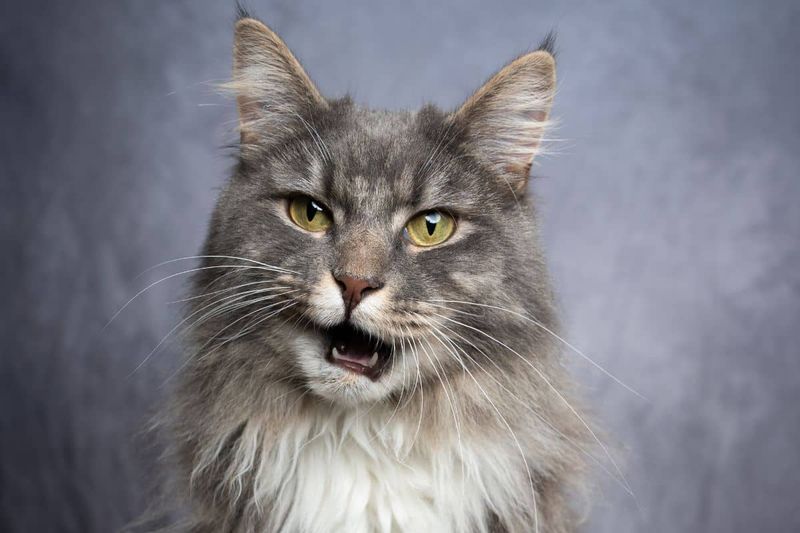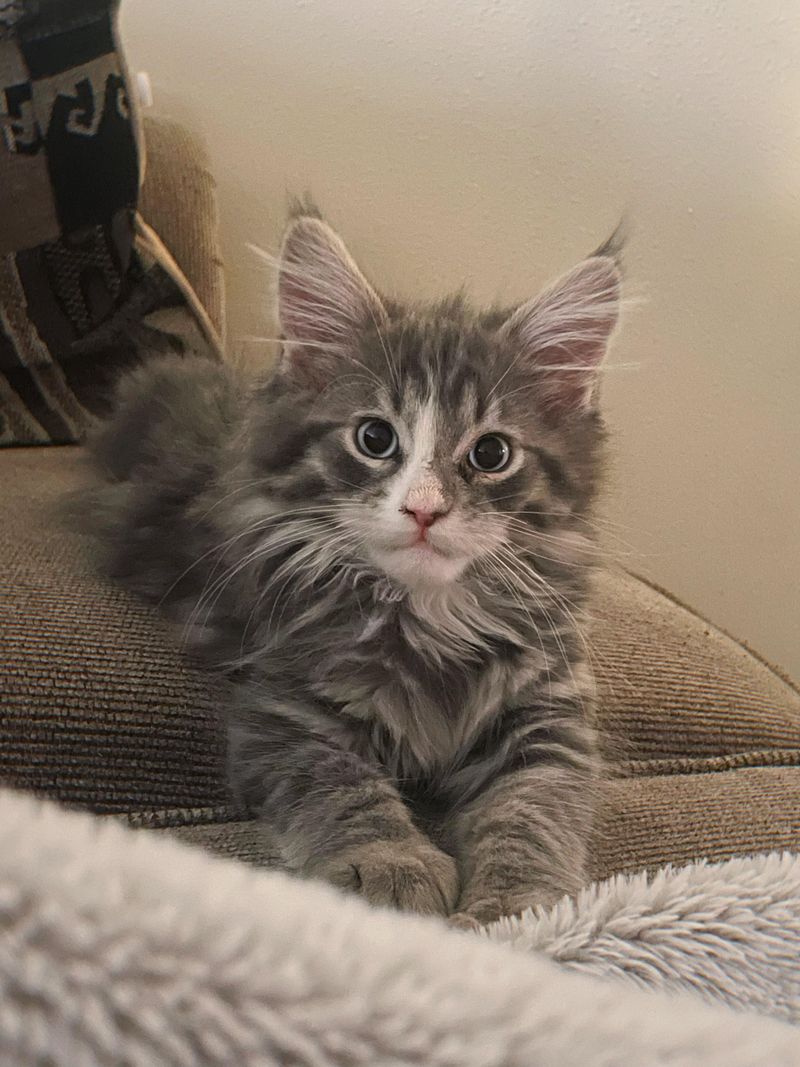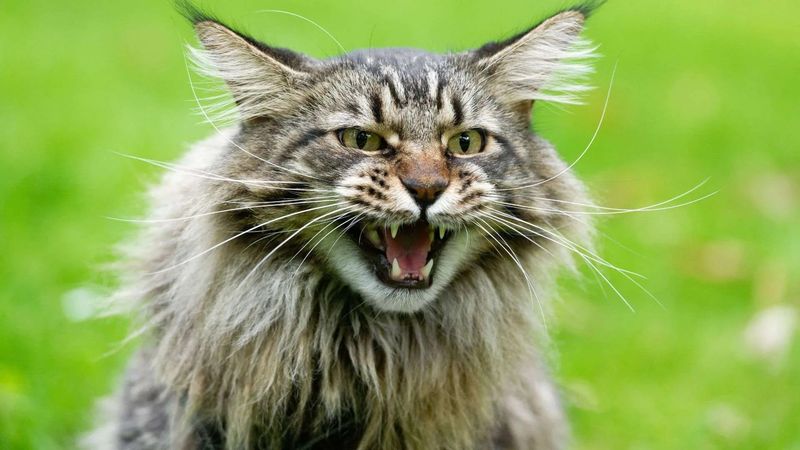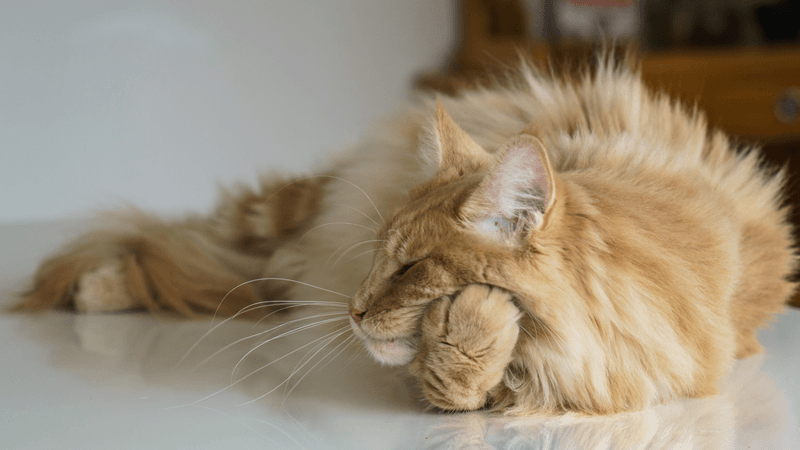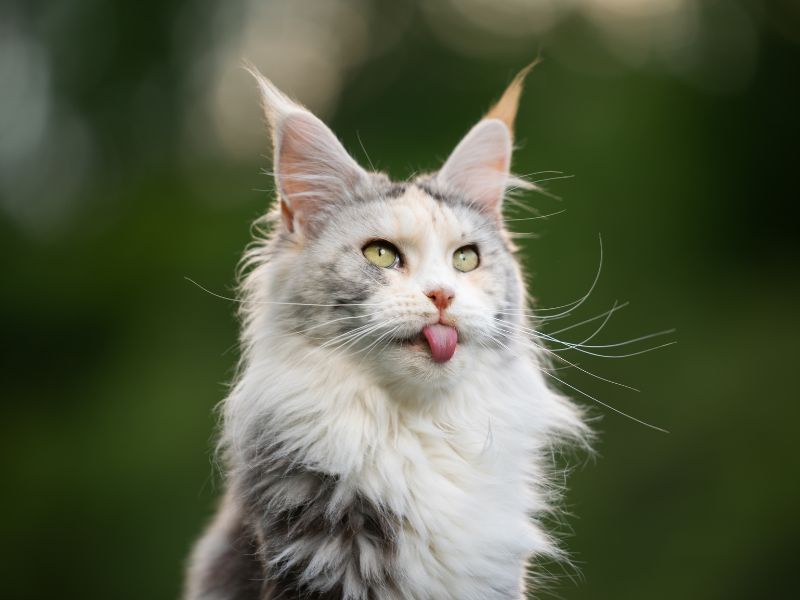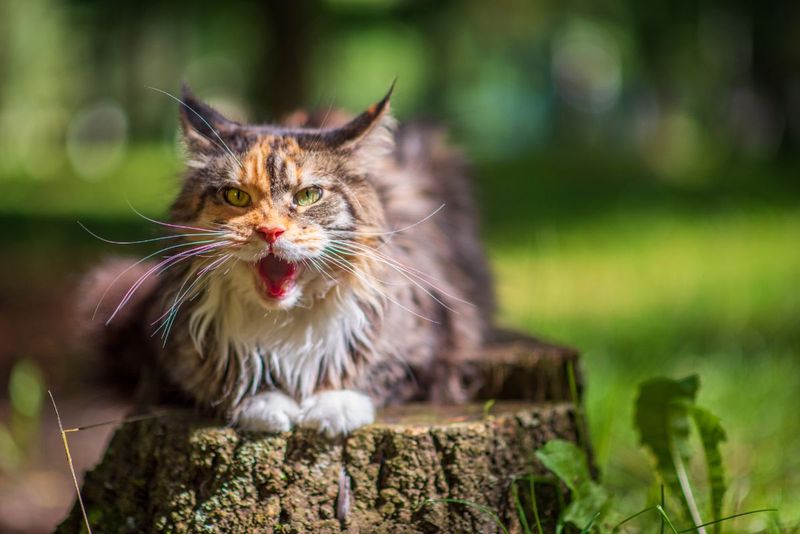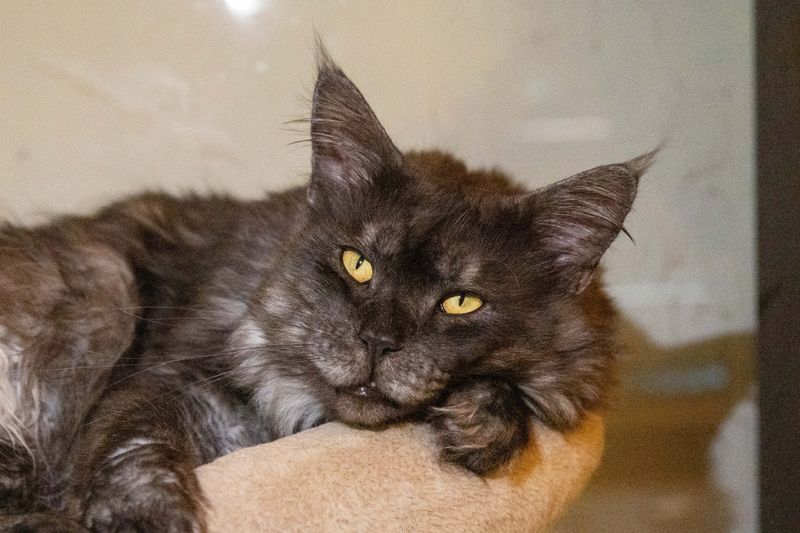📖 Table of Content:
Maine Coon cats are beloved for their affectionate nature and regal presence. These gentle giants are typically calm and friendly, but like all cats, they can experience stress and anxiety. Recognizing the early signs of anxiety is crucial to offering the right support.
An anxious Maine Coon may exhibit certain behaviors that can be subtle but revealing. While these cats are known for their laid-back personalities, stress can still impact their well-being. By paying attention to changes in their behavior, it becomes easier to address their needs before the anxiety worsens.
Providing comfort and reassurance to an anxious Maine Coon is essential for their overall health. Early intervention can help restore their calm and improve their quality of life. Here are 9 warning signs to watch for if your Maine Coon is feeling uneasy.
1. Excessive Grooming
Is your Maine Coon grooming more than usual? This can be a subtle sign of anxiety. While grooming is a natural behavior, excessive grooming may indicate stress.
Your cat might focus on certain areas, creating bald patches over time. Keep an eye on its grooming habits.
A Maine Coon’s lush fur is its pride, so changes in grooming can be concerning. Monitoring these behaviors will help you detect underlying anxiety, allowing you to address the root cause and comfort your feline friend.
2. Change in Appetite
Notice a change in your cat’s eating habits? A sudden loss of appetite or overeating can be signs of anxiety. Your Maine Coon may avoid its food bowl or eat more to cope with stress.
This change could be triggered by environmental factors or health issues. Keeping track of your cat’s eating patterns is crucial for its well-being.
A nutritious diet is vital for a Maine Coon’s health. If you observe unusual eating behaviors, it’s wise to consult a vet. This way, you ensure your furry companion stays healthy and happy.
3. Increased Vocalization
Has your Maine Coon been more vocal than usual? If you’re noticing an uptick in meowing or yowling, it could be a sign of anxiety. Cats often vocalize when they’re feeling uneasy or need attention.
If your usually quiet cat becomes more vocal, it might be trying to communicate stress. Listening to these cues can provide insights into your pet’s emotional state.
Maine Coons are known for their gentle chirps, so a sudden shift in vocal behavior could be a red flag. Paying attention to these sounds helps you respond to your cat’s needs.
4. Hiding or Withdrawal
Noticing your Maine Coon hiding more often? Withdrawal from loved ones or other animals could point to anxiety. Cats often retreat to peaceful corners when they need to cope with stress.
Finding your cat in unusual spots around the house might mean it’s trying to escape from perceived threats. Observing these behaviors helps you understand its emotional needs.
Maine Coons love social interaction, so isolation is unusual. Encouraging a safe and comfortable environment can help alleviate stress and prevent further anxiety-related behaviors.
5. Destructive Behavior
Destructive behavior, such as scratching furniture or knocking things over, can indicate anxiety in your Maine Coon. These actions are often physical signs of stress.
These behaviors are not just random acts; they might indicate underlying issues. Addressing your cat’s emotional needs can minimize such destructive tendencies.
Providing scratching posts and engaging toys can redirect your Maine Coon’s energy positively. This approach helps in managing anxiety-related behaviors while preserving your home’s decor.
6. Excessive Sleeping
Lately, has your Maine Coon been snoozing more than usual? While cats love sleep, excessive sleeping might be an anxiety sign. Stress can tire them out, leading to longer naps.
Over-sleeping may result from boredom or emotional distress. Observing sleep patterns allows you to gauge your cat’s mental state.
A Maine Coon’s active lifestyle makes it unusual for them to sleep excessively. Ensuring stimulation through play can help. Addressing anxiety can restore your cat’s usual energy and enthusiasm.
7. Restlessness or Pacing
Does your Maine Coon seem restless, pacing back and forth? This can be a clear anxiety indicator. The need to move around may signal that your cat is uneasy.
Restlessness might result from changes in the environment or routine disruptions. Observing these behaviors helps identify stress triggers.
Maine Coons are typically calm and composed. If your cat appears unsettled, engaging it in interactive activities can help ease anxiety. This approach encourages relaxation and comfort.
8. Aggression or Irritability
Has your once-gentle Maine Coon turned irritable? Aggressive behaviors, like hissing or swatting, can be signs of anxiety. Stress may cause your cat to react defensively.
Aggression is not typical for Maine Coons, known for their friendly demeanor. Understanding these changes in behavior helps address underlying issues.
Creating a serene environment can help reduce aggression. Identifying stressors and mitigating them ensures your cat remains the loving companion you cherish.
9. Reduced Playfulness
If your cat’s playtime has become less energetic, it could be a sign of anxiety. A drop in playfulness often signals stress. Your Maine Coon may lose interest in its favorite toys or activities when feeling anxious.
Play is essential for a cat’s mental and physical health. Observing changes in playfulness can reveal anxiety levels.
Maine Coons are playful by nature. Ensuring a stimulating environment with engaging toys helps maintain their playful spirit. Addressing anxiety can revive their interest in fun activities.
